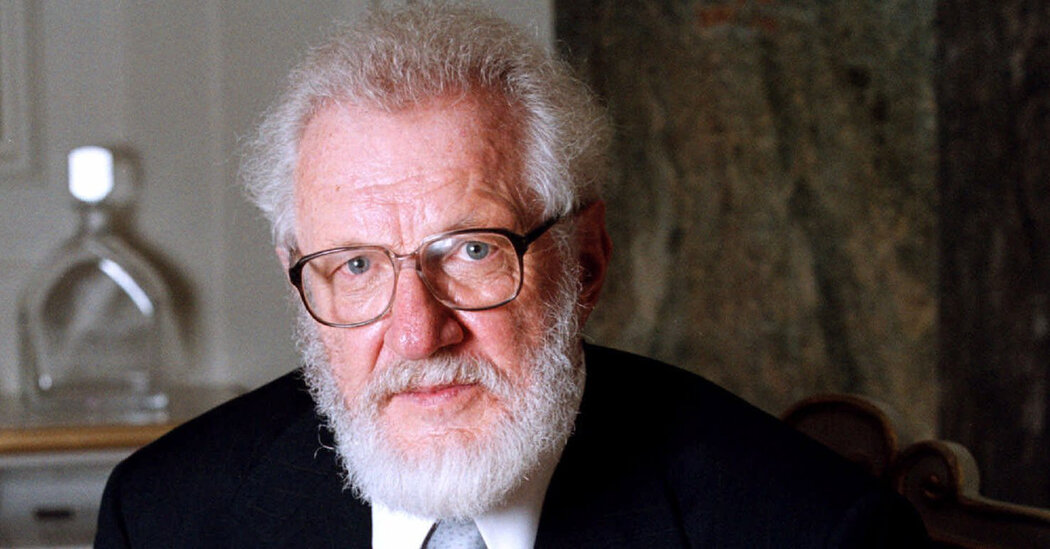
Herbert Kroemer, a German-born American physicist who was awarded the Nobel Prize for his part in discoveries that paved the way for the development of many trappings of modern life, including high-speed internet communication, mobile phones and bar-code readers, died on March 8. He was 95.
The death was announced by the University of California, Santa Barbara, where he was an emeritus professor. No further details were provided in a statement.
Dr. Kroemer’s most important contributions were in the development of so-called heterostructures. They vastly enhance the speed, and therefore the power, of transistors and other types of semiconductors that are the building blocks of all electronic equipment.
The Nobel Committee’s recognition of Dr. Kroemer’s work was unusual, since his breakthrough was in applied science rather than in pure research, which is typically where the biggest advances in the understanding of physics occur. But by the time he received a share, with two other scientists, of the Nobel Prize in Physics in 2000, the impact of his work was so enormous, it could not be denied.
His most significant research was done entirely while he was employed in the private sector.
Dr. Kroemer, who had earned his Ph.D. from the University of Göttingen in Germany just before his 24th birthday — a young age for a theoretical physicist — went to work for the German postal service in 1952 because, he said in a 2008 interview with the Nobel Institute, there were no postdoctoral positions available at the time.
The postal service had created a small laboratory and research group to look into how to improve telecommunications, staffed with experts in designing experiments. But they needed a theoretician to help them understand what was happening. Dr. Kroemer’s job, as he explained it, was to poke his nose into everyone else’s business, so long as he did not touch any of the equipment.



